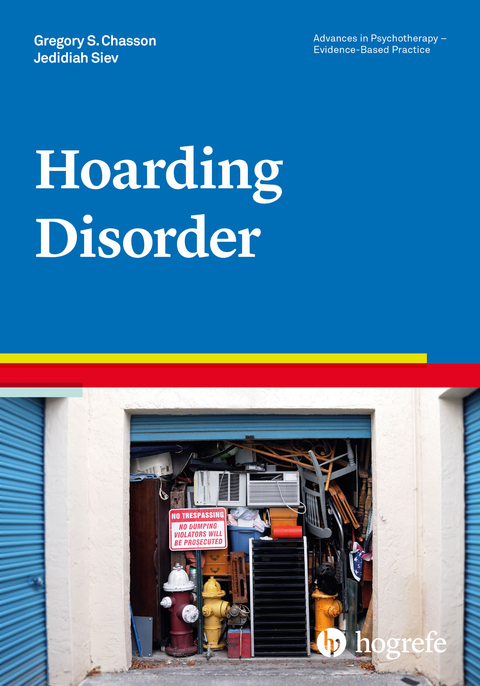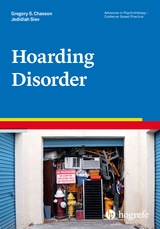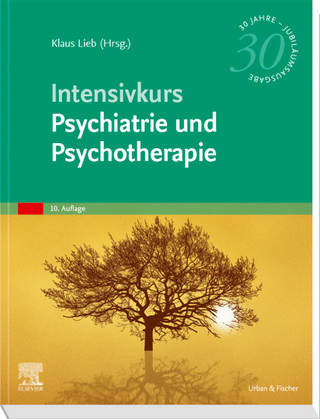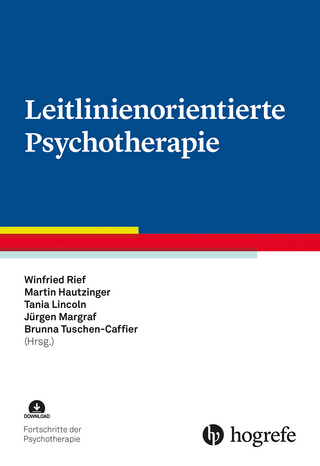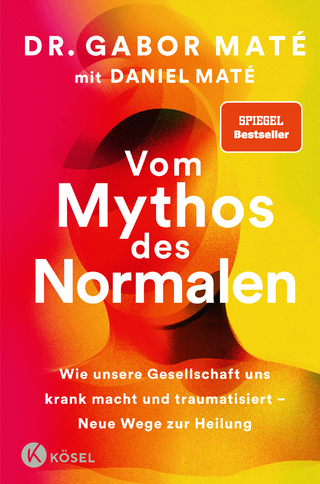Hoarding Disorder
Hogrefe Publishing (Verlag)
978-0-88937-407-2 (ISBN)
Hoarding disorder, classified as one of the obsessive-compulsive and related disorders in the DSM-5, presents particular challenges in therapeutic work, including treatment ambivalence and lack of insight of those affected. This evidence-based guide written by leading experts presents the latest knowledge on assessment and treatment of hoarding disorder. The reader gains a thorough grounding in the treatment of choice for hoarding - a specific form of CBT interweaved with psychoeducational, motivational, and harm-reduction approaches to enhance treatment outcome. Rich anecdotes and clinical pearls illuminate the science, and the book also includes information for special client groups, such as older individuals and those who hoard animals. Printable handouts help busy practitioners.
This book is essential reading for clinical psychologists, psychiatrists, psychotherapists, and practitioners who work with older populations, as well as students.
Gregory S. Chasson, PhD, is a licensed clinical psychologist, Associate Professor, Department of Psychology, Illinois Institute of Technology, and owner of Obsessive- Compulsive Solutions of Chicago. His research laboratory at Illinois Tech (i.e., Repetitive Experiences and Behavior Lab - REBL) and clinical work focus on obsessive-compulsive spectrum conditions (including hoarding), autism spectrum conditions, and anxiety and traumatic stress. He received his PhD from the University of Houston and completed pre- and postdoctoral fellowships at Harvard Medical School at McLean Hospital and Massachusetts General Hospital, respectively . Jedidiah Siev, PhD, is a licensed clinical psychologist and Assistant Professor, Department of Psychology, Swarthmore College, where he directs the Swarthmore OCD, Anxiety, and Related Disorders (SOAR) Lab. Previously, he founded and directed the OCD and Related Disorders Program, Nova Southeastern University, after completing training at the Massachusetts General Hospital and the University of Pennsylvania. Dr. Siev has considerable clinical and research experience with individuals who have hoarding, obsessive- compulsive, body dysmorphic, and anxiety disorders.
Dedication
Acknowledgments
1 Description
1.1 Terminology
1.2 Definition
1.3 Epidemiology
1.4 Course and Prognosis
1.5 Differential Diagnosis
1.5.1 Obsessive-Compulsive Disorder
1.5.2 Other Conditions
1.5.3 Hoarding Versus Collecting
1.6 Co-Occurring Disorders
1.7 Diagnostic Procedures and
Documentation
1.7.1 Structured Diagnostic Interviews
1.7.2 Clinician-Administered Symptom
Measures
1.7.3 Self- or Other-Report Symptom
Measures
1.7.4 OCD Measures With Hoarding Items
1.7.5 Summary of Diagnostic Procedures
and Documentation
2 Theories and Models of the Disorder
2.1 Cognitive Behavioral Model
2.1.1 Vulnerability Factors
2.1.2 Beliefs
2.1.3 Emotions and Reinforcement
2.1.4 Summary of the Cognitive Behavioral
Model
2.2 Biological Models
2.2.1 Genetics
2.2.2 Neurobiology
3 Diagnosis and Treatment Indications
3.1 Diagnostic Assessment
3.1.1 In-Office Assessment
3.1.2 Home Visit
3.1.3 Additional Assessment
Considerations
4 Treatment
4.1 Methods of Treatment
4.1.1 Cognitive Behavior Therapy for
Hoarding Disorder
4.2 Mechanisms of Action
4.3 Efficacy and Prognosis
4.4 Variations and Combinations of Methods
4.4.1 Group-Based Approaches
4.4.2 Technology-Based Approaches
4.4.3 Family Approaches
4.4.4 Other Psychosocial Approaches
4.4.5 Pharmacological Interventions
4.4.6 Multimodal Treatment
4.5 Problems in Carrying Out the Treatments
4.5.1 Treatment Ambivalence
4.5.2 Lack of Awareness
4.5.3 Secondary Gains
4.5.4 Co-Occurring Conditions
4.5.5 Animal Hoarding
4.5.6 Logistical Barriers
4.5.7 Ethical and Legal Barriers
4.6 Multicultural Issues and Other Individual
Differences
5 Further Reading
6 References
7 Appendix: Tools and Resources
| Erscheint lt. Verlag | 31.1.2018 |
|---|---|
| Reihe/Serie | Advances in Psychotherapy - Evidence-Based Practice ; vol. 40 |
| Verlagsort | Toronto |
| Sprache | englisch |
| Maße | 178 x 254 mm |
| Themenwelt | Geisteswissenschaften ► Psychologie ► Persönlichkeitsstörungen |
| Medizin / Pharmazie ► Medizinische Fachgebiete ► Psychiatrie / Psychotherapie | |
| ISBN-10 | 0-88937-407-4 / 0889374074 |
| ISBN-13 | 978-0-88937-407-2 / 9780889374072 |
| Zustand | Neuware |
| Informationen gemäß Produktsicherheitsverordnung (GPSR) | |
| Haben Sie eine Frage zum Produkt? |
aus dem Bereich
